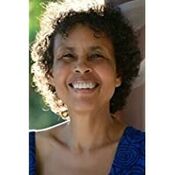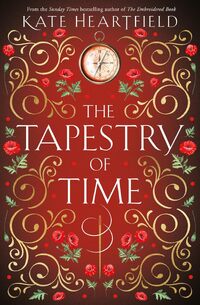Book: LAST AGENT IN PARIS
Character Name: Noor Inayat Khan
How would you describe your family or your childhood?
My father was a famous Sufi teacher from India, and he travelled the world to build up a network of Sufi centers. But the hub of it all was our home in Paris, where I lived with my two brothers and sister and parents. But darling Appa died many years ago, and so it has been just the five of us since then. Ma is American. She’s from California. She had to cut herself off from her family to marry Appa, because they disapproved of her marrying a “wandering Indian fakir”, as they called him. But eventually he made well; he found fame, if not exactly fortune, and he created a wonderful home for us on the outskirts of Paris.
We are a very close family, and it broke all our hearts when Appa passed away. Appa had been strict, in a loving, caring way. We all learned to play musical instruments, and we spoke English, French and Hindi at home.
When he died, I was thirteen and I had to be the mother of everyone, because Ma fell into depression and refused to leave her room. So I ran the household and made sure my younger siblings went to school and did their homework. It was such a busy time for me! But it was really good because I learned the meaning of responsibility. You grow up fast when you have no choice but to care for others.
What was your greatest talent?
I played the harp and the piano and I wrote stories for children. I loved all three of those gifts, but it was writing I loved the best. But just as my first children’s book was published, the Germans invaded France and that put an end to all my writing ambitions.
Significant other?
Appa always said I gave my heart too easily. I was always falling in love! It is so easy to love! I even loved the boy Appa chose for me, when I finally met him in India. We were thirteen. I cried my heart out when Ma put an end to that, and we all returned to France. But my greatest love, the one who is seared into my being – I cannot even think of him because it crumbles my heart. We met just a few days before they smuggled me back to Paris, to do the most dangerous job of all. We promised each other we’d marry at the end of the war – if we both survived. I don’t know if that will happen in my case. Probably not.
Where do you live?
I now live at 84 Avenue Foch, Paris. But that is not my home. It is the headquarters of the Paris Gestapo. They have captured me, and I am living in this small windowless cell.
Do you have any enemies?
What a question! Yes! The Gestapo is my enemy. Before I came to this place I felt I was surrounded by them, that faceless band of brutes. They stalked me. It was all I could do, to keep myself safe. Everyone on the street could be a Gestapo agent in disguise. I lived in constant fear, skulking around the streets of Paris with my huge suitcase, hiding in doorways.
What do you do for a living?
I live now as a guest of the Gestapo. I do not need to work for a living, for they maintain me for free. That’s the privilege of being a prisoner! Before they captured me, I was working as a wireless operator for the British War Office. But I’m not supposed to tell you that. It’s top secret. I haven’t even told my family, and so here I am, all alone in the world.
Your greatest sorrow?
I miss my loved ones so much. My dear sister, my darling brother. My fiancé, whom I only knew for a week, but whom I feel I have known all my life. Most of all, I miss my mother. It breaks my heart that she has no idea where I am, and must be dying with worry. I have been the center of her world since my father died, and I could not tell her about this secret job. I could not tell her of my mission.
I know that all these loved ones are thinking of me, wondering where I am, praying for my safety, agonizing over my disappearance. The greatest pain in the world is not knowing when someone you love vanishes into thin air, and this is the sorrow I have placed in the hearts of those I love most.
Your greatest source of joy?
There is practically no joy in my present life. Before, when I was free, it was music that gave me the most joy. Indian ragas, and Beethoven’s Pastoral. Vivaldi’s Four Seasons, especially Summer – what joy! And of course reading, and nature, and riding horses on the beach, and just being with those I love. All of this is no more, and I don’t know when I will know those joys again, if ever. Now, I try to turn my mind inward to find the hidden joys of my heart, as my father once taught us all. I do have rare glimpses of that joy. I pray a lot, and that brings me some peace. It is all I have. My only lifeline.
What do you do to entertain yourself or have fun?
I asked them for some paper and a pencil, and they gave it to me. I fill my days here with writing. That is, when I’m not being interrogated. But I can hardly call that entertainment or fun! It’s just a way to stay focused on something, anything, positive.
What is your greatest personal failing, in your view?
I am obstinate, and rush into things too quickly, without giving thought to the possible consequences. I suppose that’s the very reason I am here. If I had only taken my brother’s advice.
What keeps you awake at night?
The fear that they will torture me. I refuse to tell them what they want to know.
What is the most pressing problem you have at the moment?
See the answer to question 11!
Is there something that you need or want that you don’t have? For yourself or for someone important to you?
More than anything in the world, I want to stand at my mother’s door, without her knowing I’m coming home. For her to open that door. To see her face light up when she opens that door, and sees my standing there! To hear her cry of joy! To feel her tears on my cheek when she hugs me! I would give anything for such a moment. Oh, the joy of that moment!
Why don’t you have it? What is in the way?
The Gestapo.

As the bombs rained down on Paris, my family fled before the Nazis could take us. I never thought I’d see my beloved home again. But I’ve come back to fight for the people I love. And now, I’m the last agent standing. The freedom of the world rests on my shoulders.
Paris, 1940. As Nazi soldiers march down the Champs Elysees, Noor’s heart is shattered. Her family is forced to flee their home to the safety of England, and as Noor watches the French coast disappear in the distance, she vows to do everything she can to stop Germany from devouring her beloved country.
Training as a wireless operative in England, Noor’s perfect French makes her the ideal candidate for undercover work in her beloved Paris, and she is soon assigned to an illustrious spy network led by a mysterious man named Prosper.
Day after day, Noor walks the treacherous streets of Paris looking for safe places to broadcast messages to London. But Nazi officers lurk around every corner, and Noor’s heart thunders in her chest as she evades detection, tightly clutching the briefcase containing her radio equipment. She knows it would take just one stop and search for her life to be over.
With each passing day her mission becomes more lethal as, one by one, her fellow agents are captured. Someone is betraying them, but who? And when Noor becomes the last agent in the network, can she keep the links with England alive, to help win the war?
An utterly gripping and emotional World War 2 novel inspired by the incredible true story of Noor Inayat Khan, the first female radio operator sent by SOE into Nazi-occupied France. Fans of Suzanne Goldring, Ellie Midwood and Siobhan Curran will be swept away.
Suspense Historical [Bookouture, On Sale: November 6, 2024, Paperback / e-Book, ISBN: 9781835251966 / ]

Sharon Maas was born into a prominent political family in Georgetown, Guyana, in 1951. She was educated in England, Guyana, and, later, Germany. After leaving school, she worked as a trainee reporter with the Guyana Graphic in Georgetown and later wrote feature articles for the Sunday Chronicle as a staff journalist.
Her first novel, Of Marriageable Age, is set in Guyana and India and was published by HarperCollins in 1999. In 2014 she moved to Bookouture, and now has ten novels under her belt. Her books span continents, cultures, and eras. From the sugar plantations of colonial British Guiana in South America, to the French battlefields of World War Two, to the present-day brothels of Mumbai and the rice-fields and villages of South India, Sharon never runs out of stories for the armchair traveller.
No comments posted.


 © 2003-2025 off-the-edge.net
all rights reserved Privacy Policy
© 2003-2025 off-the-edge.net
all rights reserved Privacy Policy